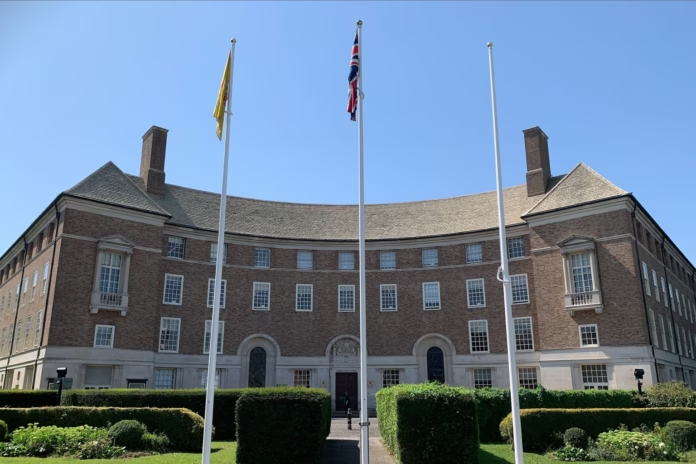A Northern Ireland council has voted to increase its domestic rate bills by almost 8% after being told by the Chartered Institute of Public Finance and Accountancy (CIPFA) that its reserve levels are “dangerously low”.
Causeway Coast and Glens Borough Council last week agreed one of the largest rises by a UK council in the past decade (7.7%) after a report it commissioned from CIPFA found the council had depleted more than half of its general fund balance in the past two years.
It warned that the authority that its reserves are now below the 5% of net operating expenditure recommended in guidance produced by the province’s Department for Communities (DfC) – and could fall as low as 2.9% by the end of this financial year.
CIPFA’s report said that even if the council did not use the full £2.38m reserves included in its 2019/20 budget to fund services, “the general fund balance is now dangerously low especially in the context of DfC guidance”.
It added: “It is, therefore, prudent to make no further use of the general fund balance to support the revenue budget.”
In response to rising funding pressures the council has budgeted for £2.5m of savings next year, and an increase in £4.4m over last year’s domestic rates income resulting from the rate hike.
A report to councillors by the council’s chief financial officer David Wright said: “Council’s budgets and finances have been under extreme pressure in recent times leading to reductions in the level of reserves being held by council.
“The continued reduction of these reserves cannot continue otherwise the reserves will be below sustainable levels.
“Consequently council officers have in this budgeting round undertaken a most extensive exercise of zero based budgeting for all areas and services of council in order to ascertain the level of funding required to continue to provide council services at their current levels.”
The council said that it faced pressures on its budget from the demands of the National Minimum Wage.
In addition, the 2020/21 budget includes an estimated decrease of 26% approximately in the level of Rates Support Grant from the department.
The council’s reserves stood at £7.9m at 31st March 2017 and at £6.6m at 31st March 2018, falling to £4.1m at the end of 2018/19.
The 2019/20 budget planned a further raid of £2.4m on reserves and the balance stood at just £1.7m on 31st December 2019.
CIPFA’s report said: “It is not clear whether the council intends to utilise the full £2.4m in 2019/20.
“Full use would result in a general fund balance of £1.4m or 2.9% of net operating expenditure carried forward to 2020/21.
The 7.7% rate rise is one of the biggest proposed by any local authority in the UK in recent years.
English councils have been subject to restrictions on the amount that they can increase council tax without calling a referendum since the 2011 Localism Act – with the cap rising to its current level of 5.99% in 2018/19.
The Scottish government froze council tax levels between 2008 and 2017, before introducing a 3% cap on increases.
Welsh authorities have seen the biggest rises in recent years.
Last year, Flintshire County Council agreed a hike of 8.8% and the previous year, Pembrokeshire County Council implemented a 12.5% increase.
This year, Newport City Council has consulted the public on a proposed 7.95% rise in its council tax rate.












